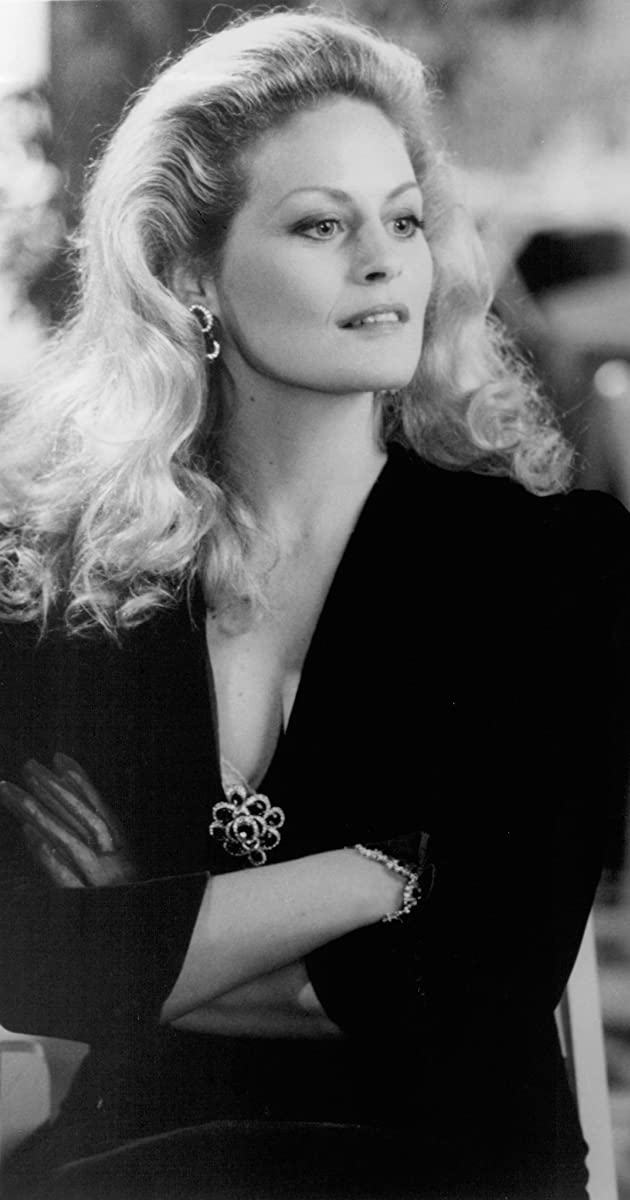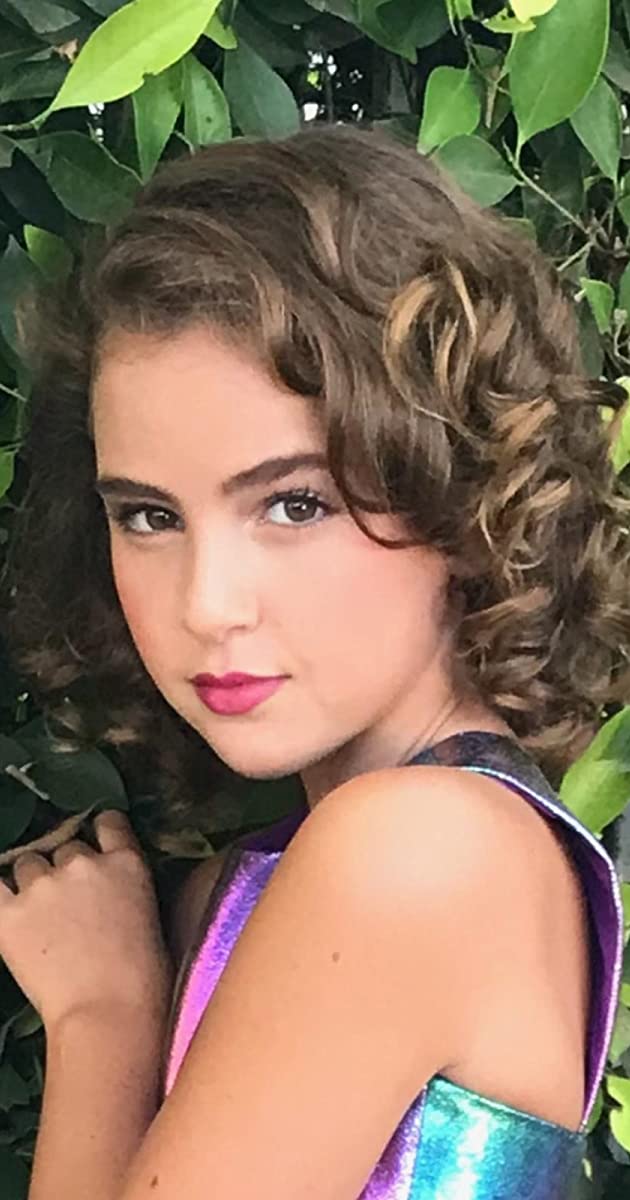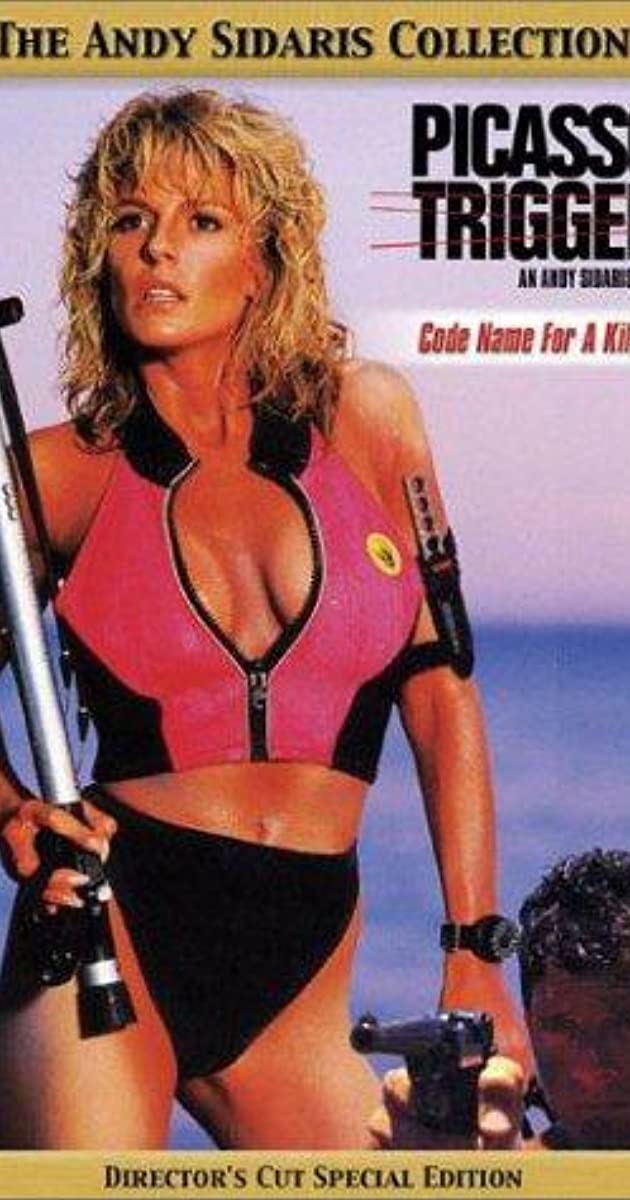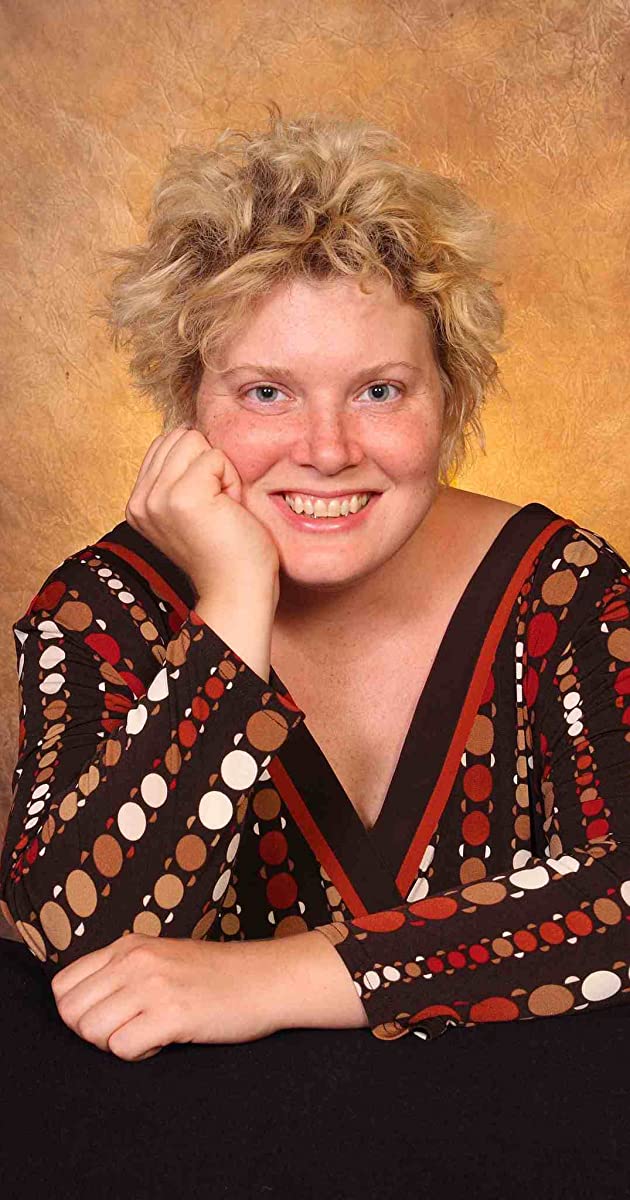
Intriguing, inspiring, and never less than interesting — key adjectives in describing the career of Beverly D’Angelo, which has well passed the three-decade mark. Perhaps deserving better movies than she generally found herself in, she nevertheless was always an object of fascination and the one to watch…whatever the role. Hardly the shrinking violet type, Hollywood counted on her for her colorful personality, down-to-earth demeanor and scene-stealing capabilities.
Beverly Heather D’Angelo was born on November 15, 1951 in Columbus, Ohio, the daughter of musicians Priscilla Ruth (Smith), a violinist, and Eugene Constantino “Gene” D’Angelo, a bass player who also managed a TV station. Her maternal grandfather, Howard Dwight Smith, was the architect who designed the Ohio (“Horseshoe”) Stadium at Ohio State University. Her mother had English, Irish, Scottish, and German ancestry, and her father was of Italian descent. Beverly once attended an American school in Florence, Italy.
Initially drawn to art, Beverly worked as a animator/cartoonist at Hanna-Barbera Productions before moving to Canada to pursue a rock singing career, To make ends meet she worked as a session vocalist and sang anyplace she could — from coffeehouses to topless bars. At one point the teenager was invited to join up with rockabilly legend Ronnie Hawkins. Beverly’s acting career started up when she left the Hawkins band and joined the Charlottetown Festival repertory company. She was touring Canada as Ophelia in “Kronborg: 1582”, a rock musical version of Shakespeare’s “Hamlet” when the renowned Colleen Dewhurst caught a performance and saw promise in both Beverly and the show. Eventually musical director Gower Champion got into the mix and the show was completely revamped, becoming the rock musical “Rockabye Hamlet”, which made its way to Broadway in 1976. While the show itself was short-lived, Beverly’s Ophelia attracted fine notices and she soon found herself on the West coast with film and TV opportunities. After this point, she seldom returned to the stage but did star alongside Ed Harris in the 1995 off-Broadway production of Sam Shepard’s “Simpatico”, which earned her a Theatre World Award.
A role in the TV miniseries Captains and the Kings (1976) led to bit parts in The Sentinel (1977) and in the Woody Allen classic Annie Hall (1977). A string of co-starring roles followed with First Love (1977), the Clint Eastwood starrer Every Which Way but Loose (1978) and the film adaptation of the hit counterculture musical Hair (1979). Best of all for Beverly was her powerhouse featured performance as the one-and-only Patsy Cline in the acclaimed biopic Coal Miner’s Daughter (1980). Both she and Oscar winner Sissy Spacek (as fellow country singer Loretta Lynn) expertly supplied their own vocals.
Playing everything from tough-as-nails prostitutes, party girls and barflies to rich, prim widows and depressed, alcoholic moms, most of Beverly’s output was solid during this time. Playing happening kind of gals, she customarily rose above much of the standard comedic or dramatic material given. An interesting gallery of offbeat characters came her way in a number of hit-or-miss features: Paternity (1981), Finders Keepers (1984), Big Trouble (1986), Maid to Order (1987), High Spirits (1988), Cold Front (1989), Daddy’s Dyin’… Who’s Got the Will? (1990), The Pope Must Die (1991), Man Trouble (1992), Lightning Jack (1994), The Crazysitter (1994), Merchants of Venus (1998) and Sugar Town (1999). She also sang in a few of these films.
Beverly attracted mainstream notice as Chevy Chase’s beleaguered wife in the comedy spoof National Lampoon’s Vacation (1983) and its three sequels. Stronger roles came with such films as the English/Irish production The Miracle (1991) and the Neo-Nazi film American History X (1998). She was also a favorite of director John Schlesinger who used her in Honky Tonk Freeway (1981) and Eye for an Eye (1996), among others. In the spoof Pterodactyl Woman from Beverly Hills (1997), in which she served as associate producer, Beverly gamely starred as a chic Beverly Hills housewife who turns into a flying prehistoric reptile by night.
On TV, Beverly scored well as matricide victim Kitty Menendez in Menendez: A Killing in Beverly Hills (1994) and earned an Emmy-nomination (and arguably gave the best performance) as Stella Kowalski opposite “Hair” co-star Treat Williams in the TV remake of A Streetcar Named Desire (1984). Other topnotch TV mini-movies included Sweet Temptation (1996) and Judgment Day: The John List Story (1993), in which she played Robert Blake’s devout wife. On primetime she has been cast quite assertively in recurring parts — lately she has been spotted on Law & Order: Special Victims Unit (1999) as a defense attorney, and on Entourage (2004) as a talent agent.
Beverly’s off-camera romantic life has been just as interesting. Following her relationship with “Hair” director Milos Forman, she married Lorenzo Salviati, an economics student who also was an Italian duke. She left Hollywood and lived with him in Europe, but separated after two years and returned. A six-year relationship with Irish director Neil Jordan was followed by one with Oscar-winning production designer Anton Furst; this ended tragically when, just weeks after their breakup, he committed suicide. A former union with the volatile Al Pacino produced twins Olivia and Anton, who were born in 2001.
These days, Beverly’s career on camera has remained secondary to the raising of her children. Occasionally she has made use of her vocal talents performing at L.A. nightclubs and with a jazz band that included brother Jeff. From time to time she still lights up the screen as a brash professional or somebody’s colorful mom; whatever time she has on screen, whether major or minor, it is always welcomed and never, ever less than…interesting.


